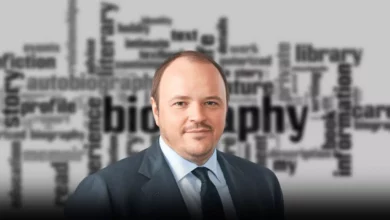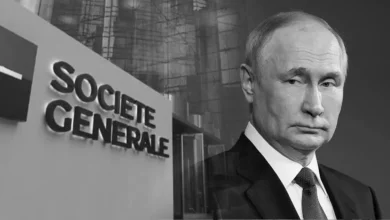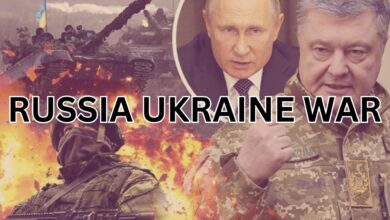Ukraine’s Tycoons Face Billions in Losses Amidst War Turmoil
The ongoing conflict in Ukraine has significantly reduced the political and economic influence of oligarchs, who had previously held hegemony in the country’s post-Soviet framework. The war has cost some oligarchs billions of dollars due to the destruction of their industrial assets, resulting in significant financial losses.
The US and EU have sanctioned certain oligarchs due to their connections to the Kremlin. President Volodymyr Zelenskiy has marginalized the oligarchs and strengthened his hold on state institutions by taking advantage of the conflict.
Policies such as combining cable news to combat misinformation and boost morale have limited the influence of media-holding oligarchs and made it easier for power to consolidate. The de-oligarchization process may be temporary, but it depends on the post-war dynamics of Ukraine.

Rinat Akhmetov filed a lawsuit against Russia in January 2023, claiming damages for losses caused by Moscow’s invasion of Ukraine. The war significantly diminished the power of oligarchs in Ukraine, including Akhmetov, who lost billions of dollars in revenue. Oligarchs faced sanctions from the US and EU due to their ties to the Kremlin.
In June 2023, President Volodymyr Zelenskiy charged Akhmetov with conspiring with Russia to engineer a coup, escalating tensions between the government and Akhmetov. The Ukrainian government was in danger of sanctions, including financial fines, asset freezes, and other punitive actions.
In response, Akhmetov gave up his media licenses to the Ukrainian government, possibly to keep him off the “Zelenskiy list of oligarchs.” This list likely refers to a list created by President Zelenskiy to counter oligarchic influence and strengthen his hold on state institutions. Akhmetov’s decision to give up media licenses may have been a calculated move to keep himself out of the government’s sights and prevent further marginalization.
For the most accurate updates on Rinat Akhmetov’s lawsuit and the whereabouts of Ukraine’s oligarchs after June 2023, it is recommended to consult official statements from the Ukrainian government or recent news sources.
De-oligarchization initiatives (November 8, 2021):
Andriy Yermak, the head of the Office of the President of Ukraine, emphasized President Zelenskyy’s commitment to de-oligarchization in an article for the Atlantic Council. Yermak enumerated measures designed to prevent oligarchs from entering the media, government, and political spheres.
The defense of the Anti-Oligarch Law (September 23, 2023):
Ruslan Stefanchuk, the head of the Ukrainian parliament, backed the nation’s “anti-oligarch” laws. He said that Kyiv had agreed to delay its implementation in line with the Council of Europe’s Venice Commission’s recommendations. This calls for ongoing discussions and adjustments to the timeline for implementing the anti-oligarchy measures.
On June 27, 2022, Rinat Akhmetov filed a lawsuit.
Rinat Akhmetov, the richest man in Ukraine, filed a lawsuit against Russia in the European Court of Human Rights, demanding compensation for the invasion of his nation. The outcome of this legal action, which may have begun in June 2022, and the events that followed could have affected Akhmetov’s standing and influence.
RAND article (January 5, 2024):
An article titled “Postwar Ukraine: Planning for a Successful and Secure Recovery” which was published by RAND on January 5, 2024, details the challenges and opportunities of rebuilding Ukraine following the war. It also offers suggestions for potential security accords with the US and NATO, emphasizing the significance of having a comprehensive and secure recovery plan.
United Nations, World Bank, and European Commission Joint Assessment (March 23, 2023):
The World Bank Group, the European Commission, and the UN jointly released an assessment of Ukraine’s needs for rehabilitation and reconstruction on March 23, 2023. $411 billion was the estimated cost, and financing gaps and priority sectors were identified. This assessment is probably going to be the starting point for organizing foreign assistance for Ukraine’s reconstruction.
Policy Brief, Heritage Foundation (October 2024):
A policy brief titled “Ukraine’s Post-War Reconstruction Strategy: Breaking Free of the Soviet Economic Legacy” was released by the Heritage Foundation in October of 2024. Instead of heavily depending on government spending and aid, the brief promotes private investment and wealth creation. This implies a reconstruction plan for Ukraine that places a strong emphasis on market-oriented methods and economic independence.

President Zelensky of Ukraine recently signed an order bringing all national TV channels together on a single platform, citing the need for a “unified information policy” during martial law. The announcement on the president’s website did not specify when this measure would go into effect.
Zelensky has signed a decree ending negotiations with Russian President Vladimir Putin, following Putin’s announcement that Ukrainian territories were being illegally annexed. This conflict, initiated in February 2023 to quell pro-Western sentiment in Ukraine, has resulted in the largest refugee crisis in Europe since World War II. The COVID-19 pandemic has brought tensions between Russia and the West to levels not seen since the Cold War.
Russia’s Defense Minister Sergei Shoigu has confirmed that over 200,000 people have enlisted in the Russian Armed Forces as part of a “partial mobilization” for the conflict in Ukraine. Four regions of Ukraine have been illegally annexed by Russia, a clear breach of international law. This action follows “referendums” organized by leaders with Russian support, which are considered illegal by international law.
RECENT UPDATES ON UKRAINE’S OLIGARCHS YIELD
Moreover, In 2022, media magnates from Ukraine ceded ownership of their businesses to comply with a law meant to curtail their power. If a person has significant media influence, owns a business monopoly, is politically active, or has wealth over $70 million, they are classified as oligarchs by the law, which limits their ability to buy privatized state assets and support political parties.
Renowned persons like Mr. Akhmetov granted licenses to the state media. As the fighting continued, Ukrainian authorities stepped up their campaign against oligarchs and arrested Mr. Kolomoisky on charges of fraud and money laundering. The Minister of Justice acknowledged that the war had increased state power and thereby reduced the economic sway of oligarchs.

Concerns remain over Ukraine’s dependence on businesses owned by oligarchs and the potential for an oligarchic post-war society. The nationalization of businesses for military use during the conflict, according to opponents, raises concerns about why property was taken.
They warn against turning these measures into state capitalism and against the emergence of new oligarchic organizations that benefit from the reallocation of resources during times of war. The Anti-Corruption Action Center highlights the need for prompt action against questionable practices.








